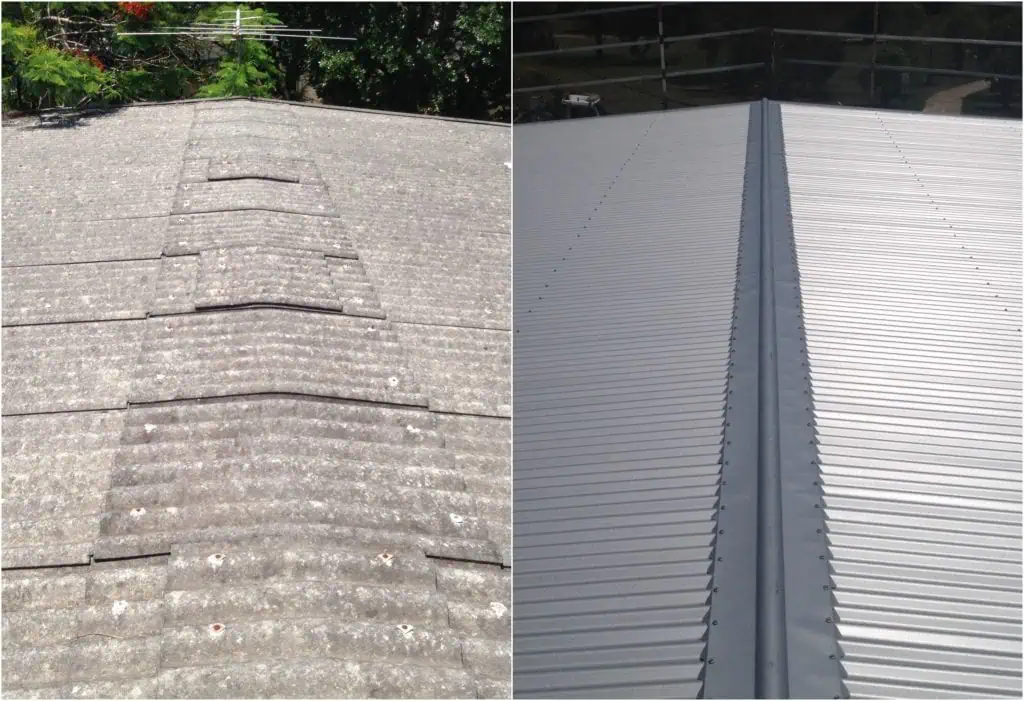Asbestos is a naturally-occurring mineral which has been mined and manufactured for use in different forms. It was extensively used in the building industry because of its strength, durability and fire resistant properties. Asbestos roofing is made up of a bonding substance, such as cement, and up to 15% of asbestos and is also commonly known as fibro, super six, asbestos cement or AC sheeting.
1 in every 3 Australian homes built prior to 1982 contain Asbestos
By 2020 it’s estimated that approximately 40 000 Australians will be diagnosed with asbestos related diseases
“If you are thinking renovation, you must think asbestos,”
Asbestos was once an extremely popular construction material. It was an inexpensive insulator, and many manufacturers used the fibres in insulation, roofing, cements and other homebuilding items.
Multiple brands produced asbestos roofing materials, including:
Researchers soon discovered, though, that the mineral was carcinogenic, and the Australian government banned all new asbestos applications.
There was just one catch: older asbestos products could legally remain in place.
These products are generally not a human health threat when left alone. Sometimes it is safer to leave them in place than to tear them out – hence the provision for existing asbestos materials. However, when these materials are disturbed in any way, the asbestos fibres can enter the air, where they become a significant health hazard.
Renovations and demolition projects – especially on homes that were built before 1988 – can easily pose asbestos exposure risks if done by an untrained individual. Construction workers in many different sectors may create these exposure hazards during basic activities.
To reduce these asbestos exposure risks, the Asbestos Industry Association recommends professional management of asbestos-containing materials. Roofers should undergo asbestos training before handling potentially contaminated roofing products. They should also work with asbestos inspection professionals to identify asbestos threats before beginning a roofing project.

Most people are exposed to miniscule amounts of asbestos during their lifetime. Not everyone who comes into contact with the fibres will develop an asbestos-related disease. However, exposure does increase a person’s risk for several severe illnesses, and the risk increases with the length and amount of the person’s asbestos exposure.
Mesothelioma is the signature asbestos-related cancer. This cancer – which is characterized by chest pain, difficulty breathing and coughing – is almost always the result of asbestos exposure. It often develops several decades after the patient came into contact with the fibres.
Several additional diseases can also result from exposure.
These illnesses include:
Because these diseases are serious and often life-threatening, anyone who has a history of asbestos exposure should register for regular health screenings. The screenings can help detect mesothelioma and other cancers in their earliest stages, which can help increase the patient’s life-expectancy.
Author bio: Faith Franz researches and writes about health-related issues for The Mesothelioma Center. One of her focuses is living with cancer.
Source: Asbestos Industry Association Online – Understanding Asbestos.
A big thank you to Asbestos.com for their article on Mesothelioma. If you would like any furthur information regarding Asbestos please visit www.asbestos.com

Get to know your roof

Which finish is right for you?

Does your roof have any of these problems?

Roof profiles and finishes

Learn about the hazards

7 key factors

Help your roof last longer

Your questions answered

Our dedication to education
